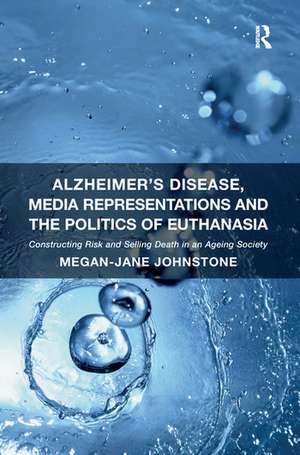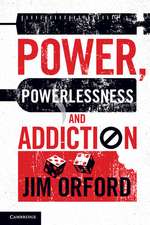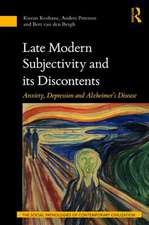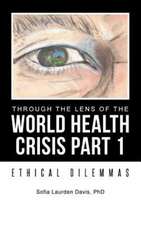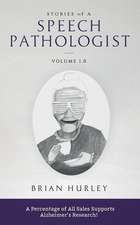Alzheimer's Disease, Media Representations and the Politics of Euthanasia: Constructing Risk and Selling Death in an Ageing Society
Autor Megan-Jane Johnstoneen Limba Engleză Paperback – 28 noi 2016
| Toate formatele și edițiile | Preț | Express |
|---|---|---|
| Paperback (1) | 455.78 lei 6-8 săpt. | |
| Taylor & Francis – 28 noi 2016 | 455.78 lei 6-8 săpt. | |
| Hardback (1) | 822.91 lei 6-8 săpt. | |
| Taylor & Francis – 4 apr 2013 | 822.91 lei 6-8 săpt. |
Preț: 455.78 lei
Nou
Puncte Express: 684
Preț estimativ în valută:
87.21€ • 91.06$ • 72.02£
87.21€ • 91.06$ • 72.02£
Carte tipărită la comandă
Livrare economică 15-29 aprilie
Preluare comenzi: 021 569.72.76
Specificații
ISBN-13: 9781138271852
ISBN-10: 1138271853
Pagini: 246
Dimensiuni: 156 x 234 x 13 mm
Greutate: 0.45 kg
Ediția:1
Editura: Taylor & Francis
Colecția Routledge
Locul publicării:Oxford, United Kingdom
ISBN-10: 1138271853
Pagini: 246
Dimensiuni: 156 x 234 x 13 mm
Greutate: 0.45 kg
Ediția:1
Editura: Taylor & Francis
Colecția Routledge
Locul publicării:Oxford, United Kingdom
Notă biografică
Megan-Jane Johnstone is Professor of Nursing and Director of the Centre for Quality and Patient Safety Research at Deakin University, Australia. She is author of Bioethics: A Nursing Perspective, Nursing and the Injustices of the Law, and co-author of Ethics in Nursing Practice.
Recenzii
"...an interesting sociological take on Alzheimer’s disease and the construction of the euthanasia debate. As such, it will appeal to readers from those disciplines seeking to explore techniques used in the media and political debate in greater depth."
Laura Pritchard-Jones, Centre for Social Ethics and Policy, School of Law, University of Manchester, Manchester, UK, Medical Law Review
’This is by far and away the most engaging and compelling discussion of the politics of euthanasia as it has converged on the lives of the most deeply forgetful, whose morally protected status under the principle of "do no harm" is regularly undermined by sweeping negative generalizations in media and politics about their experiences. The idea that their lives mean so little is popularized by 'hypercognitive' and "hypereconomic" outsiders who not only fail to understand the experience of dementia, but who use the deeply forgetful as convenient pawns in their political-ideological games. Here we finally have a book that reclaims dignity.’ Stephen G. Post, Stony Brook University, New York ’This book demonstrates how perceptions of dementia have changed. Alzheimer’s disease in particular is presented as a terrifying calamity with pre-emptive euthanasia as ultimate remedy. Portraying this disease as worse than death fuels an ideological crusade to promote ending life as a treatment option. It is time to stop this pro-death propaganda. Dr. Johnstone provides the arguments and strategies.’ Henk ten Have, Duquesne University, Pittsburgh, USA 'Considering the emotionally charged and rather specialized topic, the text may be suited to mental health practitioners working with older adults, particularly those concerned with end-of-life care. Professionals with a distinct interest in normative, media or linguistic issues may find it equally attractive. ... Megan-Jayne Johnstone provides a valuable perspective onto potential broadcasting biases an important ethical issue of our times.' Journal of Mental Health 'For those interested in understanding the current debate and enhancing their ability to critique, implement and create subsequently related policies, it is likely that this book will be of great help. ... this book will be an excellent addition to the library of academics, students, doctors, clinicians and caregivers.' Critical Social Policy 'This is an exce
Laura Pritchard-Jones, Centre for Social Ethics and Policy, School of Law, University of Manchester, Manchester, UK, Medical Law Review
’This is by far and away the most engaging and compelling discussion of the politics of euthanasia as it has converged on the lives of the most deeply forgetful, whose morally protected status under the principle of "do no harm" is regularly undermined by sweeping negative generalizations in media and politics about their experiences. The idea that their lives mean so little is popularized by 'hypercognitive' and "hypereconomic" outsiders who not only fail to understand the experience of dementia, but who use the deeply forgetful as convenient pawns in their political-ideological games. Here we finally have a book that reclaims dignity.’ Stephen G. Post, Stony Brook University, New York ’This book demonstrates how perceptions of dementia have changed. Alzheimer’s disease in particular is presented as a terrifying calamity with pre-emptive euthanasia as ultimate remedy. Portraying this disease as worse than death fuels an ideological crusade to promote ending life as a treatment option. It is time to stop this pro-death propaganda. Dr. Johnstone provides the arguments and strategies.’ Henk ten Have, Duquesne University, Pittsburgh, USA 'Considering the emotionally charged and rather specialized topic, the text may be suited to mental health practitioners working with older adults, particularly those concerned with end-of-life care. Professionals with a distinct interest in normative, media or linguistic issues may find it equally attractive. ... Megan-Jayne Johnstone provides a valuable perspective onto potential broadcasting biases an important ethical issue of our times.' Journal of Mental Health 'For those interested in understanding the current debate and enhancing their ability to critique, implement and create subsequently related policies, it is likely that this book will be of great help. ... this book will be an excellent addition to the library of academics, students, doctors, clinicians and caregivers.' Critical Social Policy 'This is an exce
Cuprins
Chapter 1 The Alzheimerization of the Euthanasia Debate; Chapter 2 The Incidence and Impact of Alzheimer’s Disease; Chapter 3 Media Representations, Metaphors, and the Stigmatization of Alzheimer’s Disease; Chapter 4 Curbing Demand for Acute Healthcare Services; Chapter 5 The Euthanasia Option; Chapter 6 Mobilizing Political Support for the Legalization of Euthanasia; Chapter 7 Propaganda, 'Dirty Tricks' Fallacies, and Opposing Points-of-view; Chapter 8 Selling Death; Chapter 9 Alzheimer’s Disease and Euthanasia as a Symbolic System of Control; Chapter 10 Euthanasia Politics and Public Opinion;
Descriere
Drawing on extensive data this book explores the 'Alzheimerisation' of the euthanasia debate, examining the shift in recent years in public attitudes towards the desirability and moral permissibility of euthanasia as an end-of-life 'solution' for people living with the disease - not just at its end stage, but also at earlier stages. With attention to media representations and public understandings of Alzheimer's disease, this book sheds light on the processes contributing to these changes in public opinion, investigating the drivers of vexed political debate surrounding the issue and examining the manner in which both sides of the euthanasia debate mobilise support, portray their opponents and make use of media technologies to frame the terms of discourse.
